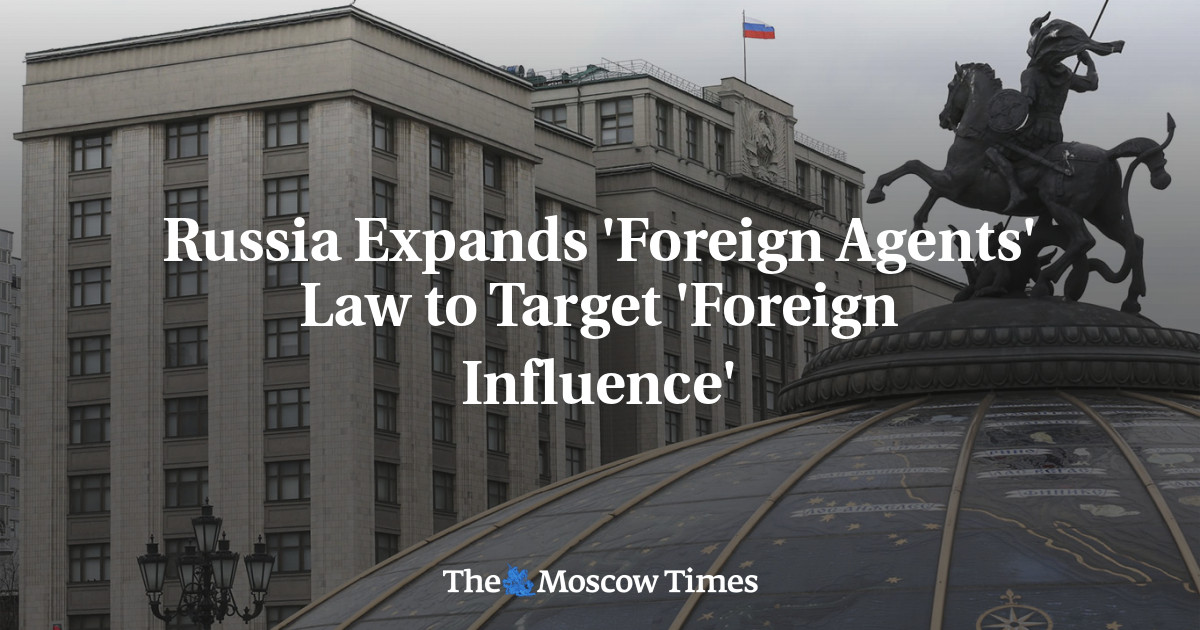
Russia’s lower house of parliament has passed a new bill expanding the criteria for individuals and organizations who can be labeled “foreign agents.”
According to the new law passed by the State Duma, any organization or person deemed “under foreign influence” can be listed as a “foreign agent,” barring them from activities such as receiving state financing, teaching at state universities, working with minors, or providing expertise on environmental issues.
Previously, only groups or individuals that received money from abroad could be legally called a “foreign agent.”
The legislation also sets out a new register of people and groups “affiliated with foreign agents” to be maintained by Russia’s Justice Ministry. The list will include anyone who has worked with a “foreign agent” or received financing from one.
The bill must now be approved by Russia’s upper-house Federation Council and signed by Russian President Vladimir Putin before it becomes law.
Introduced in 2012, Russia’s “foreign agents” law has been widely applied to organizations that challenge the Kremlin, including human rights groups and independent news outlets.
Those who have been given the label, which echoes the Soviet-era tag “enemy of the people,” are subject to numerous constraints and accounting procedures, such as adding boilerplate texts declaring their status on all online posts.